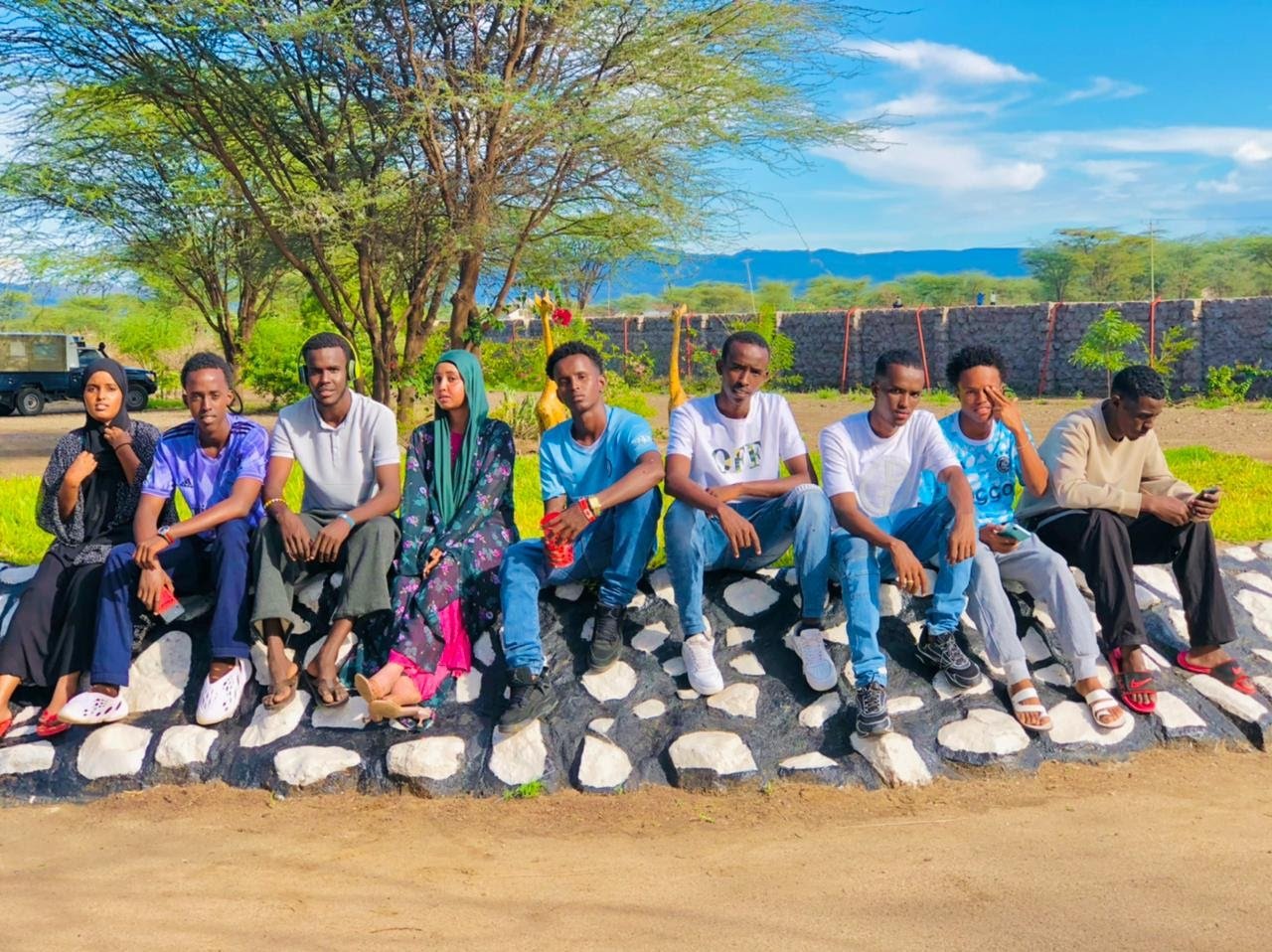Competent and confident: one student’s challenge to evidence his learning
Abdifatah is a 20 year old Somali student, part of the third cohort of the Amala High School Diploma in Kakuma Refugee Camp, Kenya. He arrived at the camp in 2020, and enrolled at Amala in 2022 after finishing his primary education. Abdifatah is a typical high achiever: a keen basketball player, reader, artist and dancer. He speaks multiple languages, including Hindi, picked up from watching Indian television series. As such, he has set himself an ambitious challenge to evidence all 47 of the competencies on the Amala High School Diploma.
The assessment model for the High School Diploma is based on students developing competencies which support their agency for creating positive change. As they study for the Diploma, students are required to show evidence of developing the Amala competencies, which are assessed by local learning facilitators and moderated by the Amala Global team. Evidence can come from course assignments, such as written coursework, or even outside of the Amala curriculum, such as volunteering.
To graduate, students on the Diploma must evidence the 21 foundational competencies. There are a further 26 advanced competencies which are optional. For example, the average number of advanced competencies verified by the previous cohort in Kakuma was 10. We were interested in learning more about why Abdifatah wanted to set himself this challenge and how he is getting on.
How is your challenge going, Abdifatah?
I have completed all of the foundational competencies. Overall I have currently verified 35 and I’m trying to get up to 47. But the challenge is in the process, not the outcome. My personal learning facilitator, Lukambo, says that even if I’m not able to finish all 47, trying and falling short is better than not trying at all. Right now, I’m working on my Personal Interest Project (PIP).
What subject have you chosen for your PIP and why?
My PIP is about street children who are suffering on the streets of Kakuma, and helping them to get into education. I’ve chosen this because it’s an issue I’m aware of. Amala introduced me to PIPs and projects. Before, I didn’t know how I could create projects to help others. I used to see children on the street, doing drugs, not going to school. I always had the feeling that someday, I’d be able to help them. So when I came to Amala I had an opportunity to learn and come up with a project, so this is the project that I chose.
What has been the most challenging one to evidence so far, if any?
At the beginning I didn’t understand how to evidence them at all. At the start, I just had the goal in mind, but the facilitators, like Lukambo, have helped me to really understand how to show evidence of my learning. The first courses, like Maths for Change, were challenging. Before I started this course I thought it might just be mathematics, which was daunting to me and my other colleagues. But it was more about budgeting. As I started to understand more about evidencing, it became easier. I learnt that “artefacts” doesn’t just mean pictures. I’ve evidenced a few competencies by using my voice and using video.
How do you think you will feel when you have done this challenge?
I’ll be excited. Because accomplishing a goal will be an enjoyable moment. No student has yet evidenced all 47 competencies. I want to show the Amala community that I can try.
What do you hope to do after Amala?
I have a lot of plans. If I get help with the street children project, maybe I'll go and help people around the world. I also love social media and would like to become an influencer on TikTok or Youtube. I’m a sociable person, and I made a lot of friends through Amala and have come to understand myself. I’ve got to know other people who I held stereotypes about before I joined. I’ve come to know that they’re not like that, and the danger of a single story.
You can check out Abdifatah’s TikTok channel here.
Find out more about the Amala High School Diploma and assessment model.


